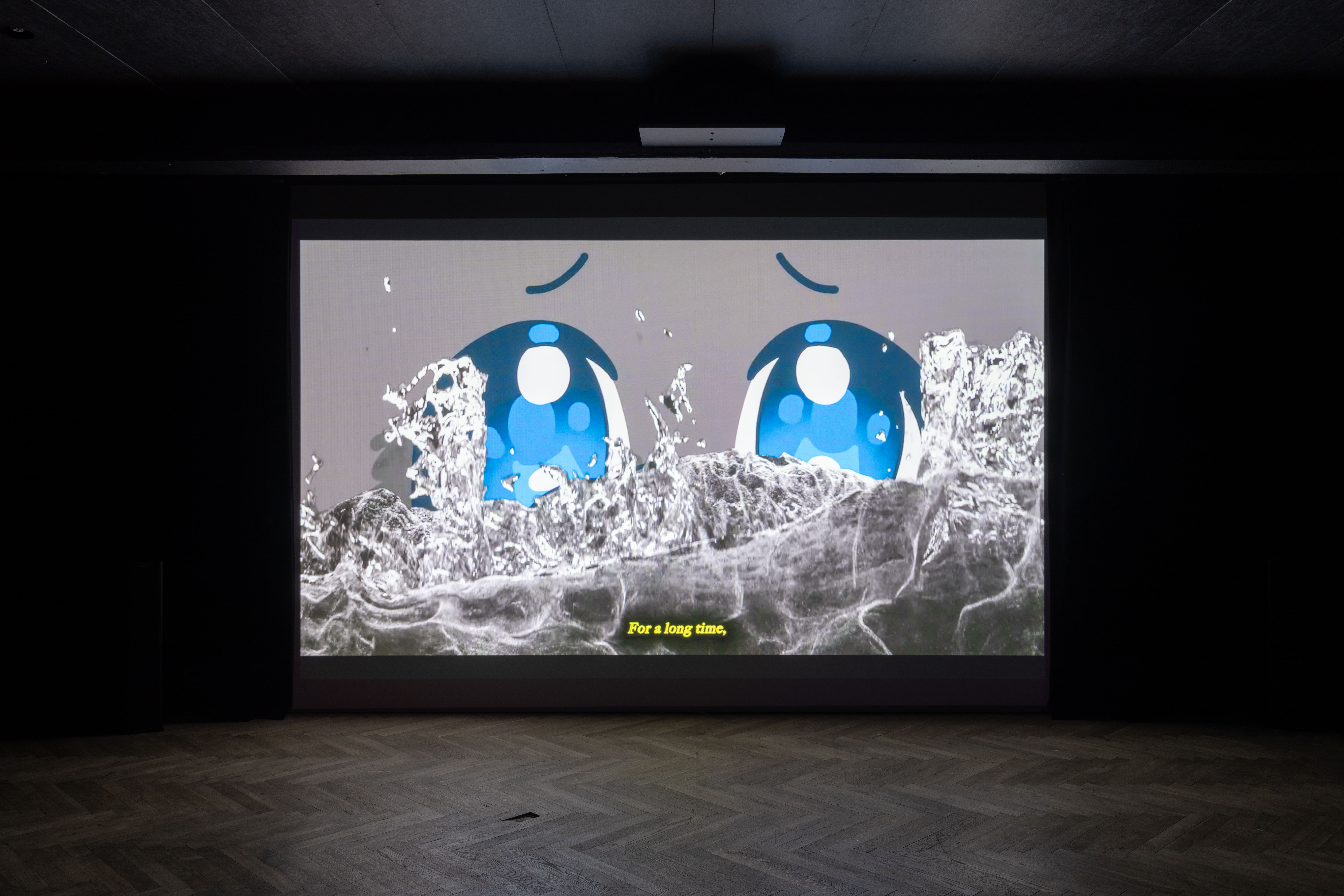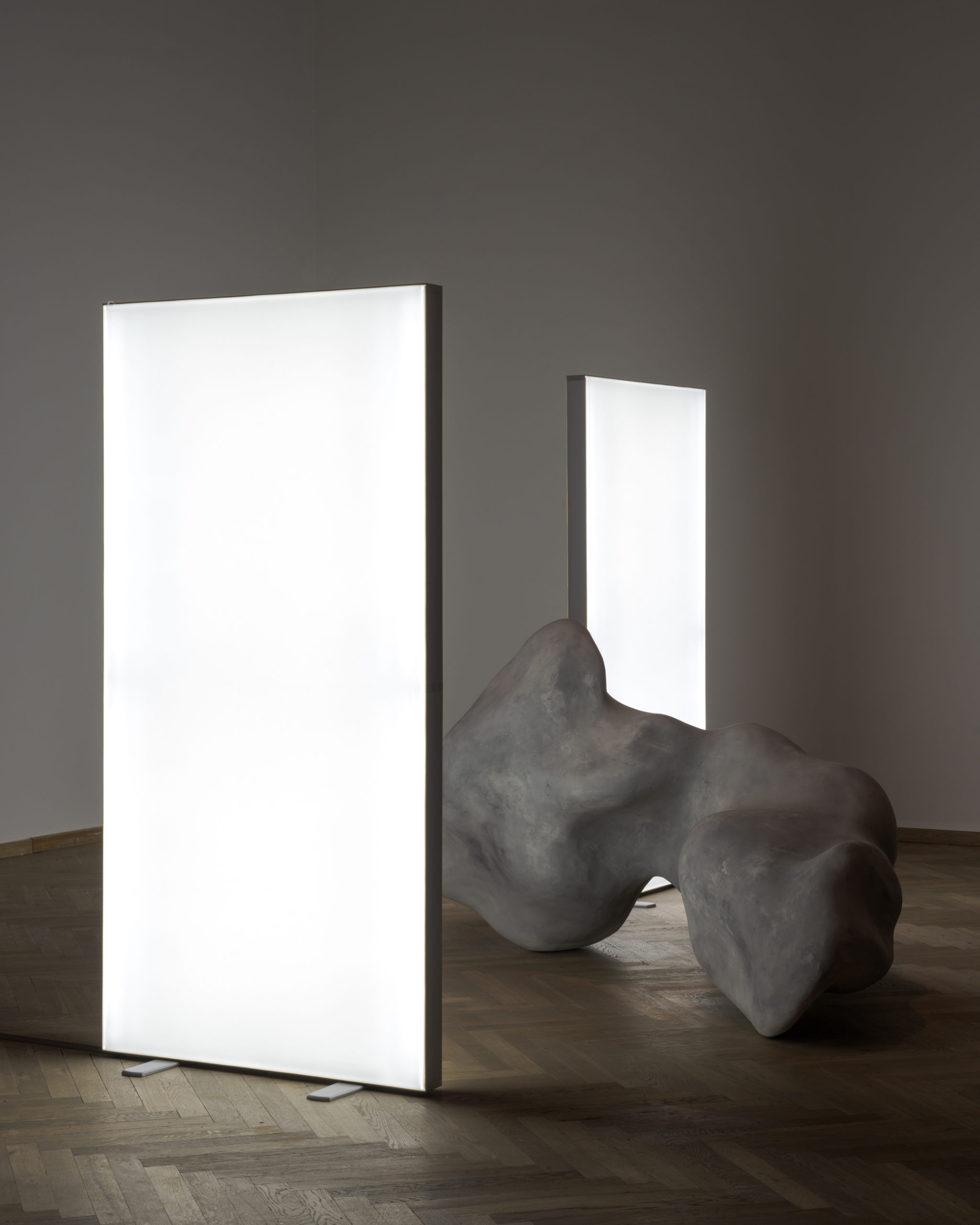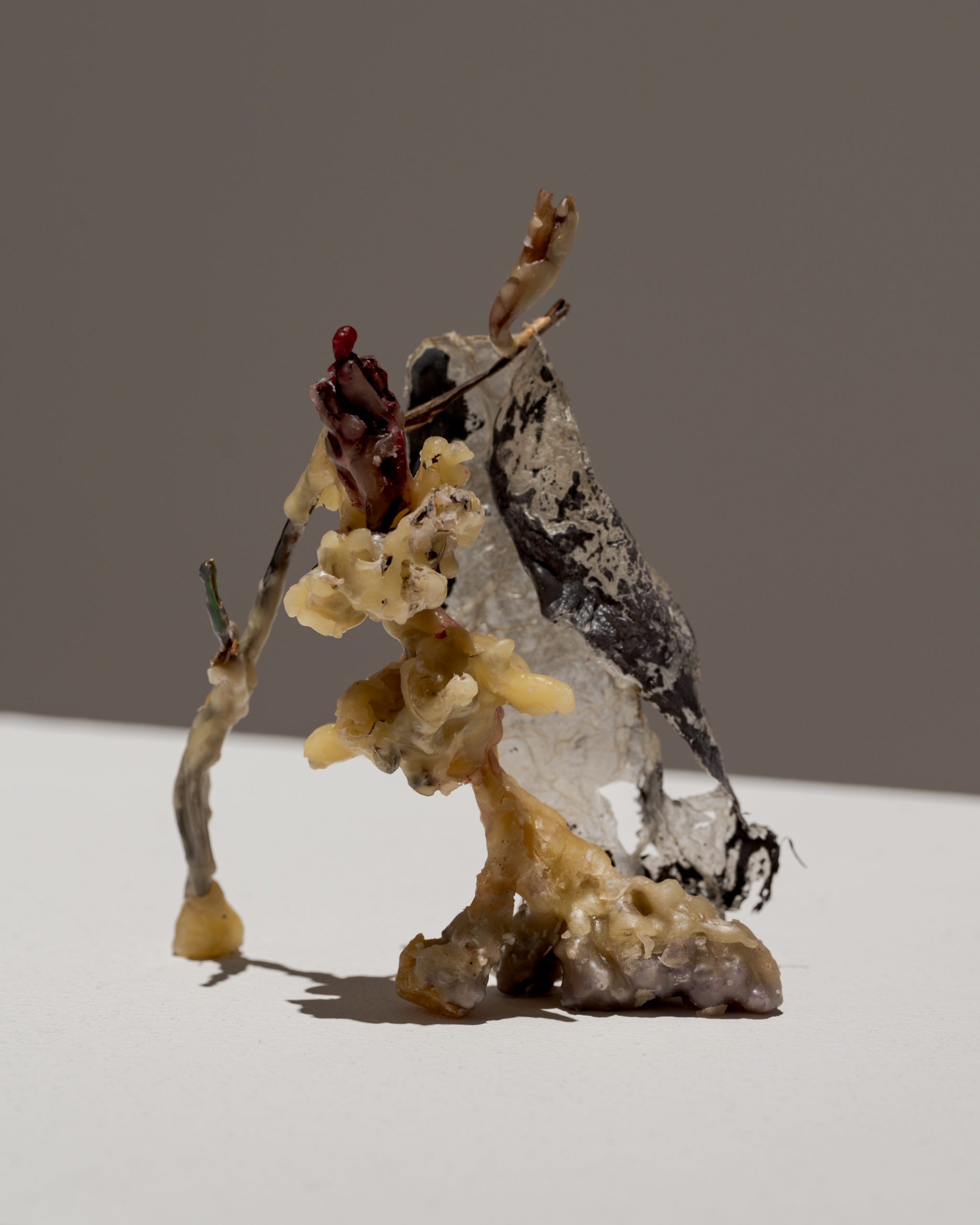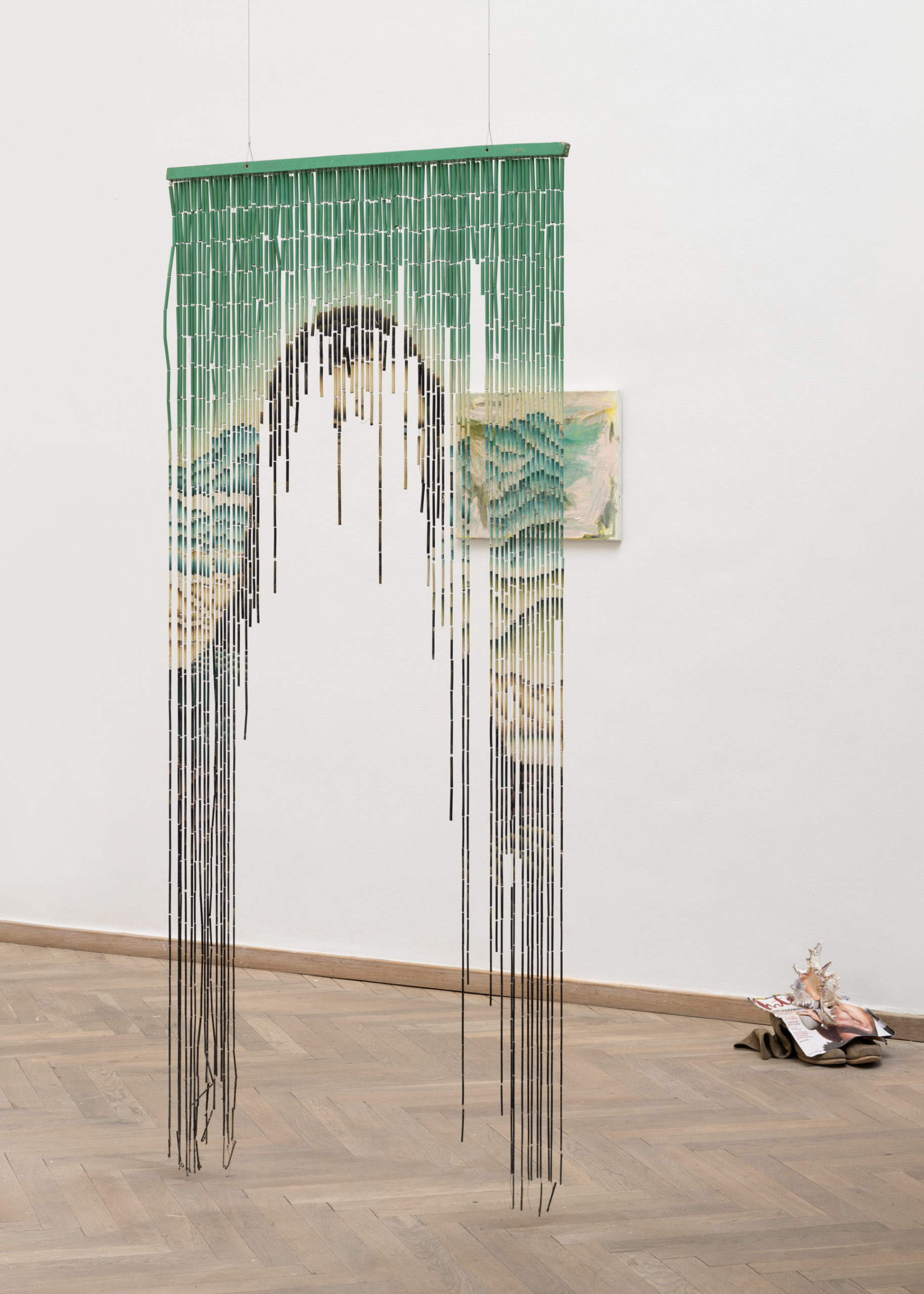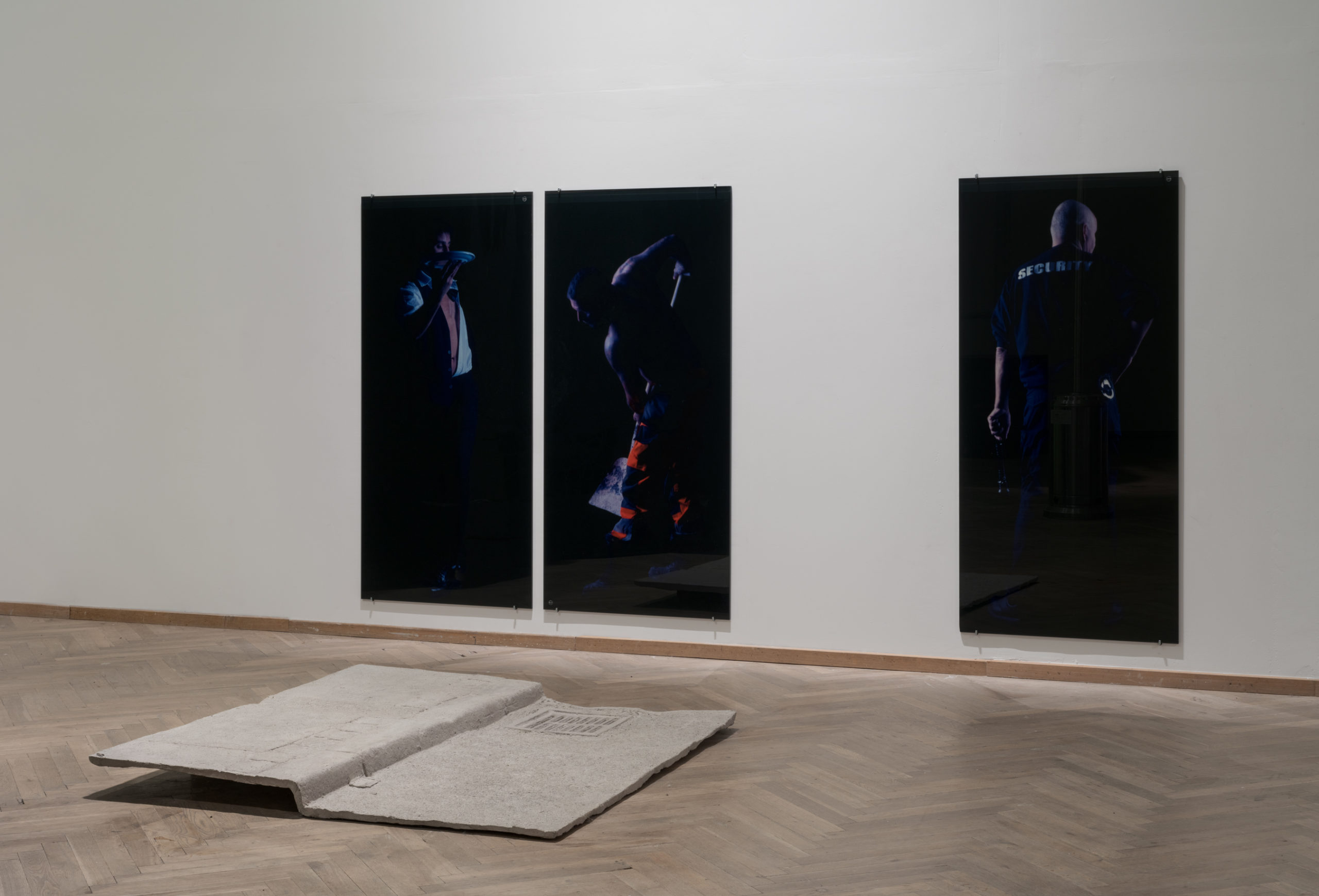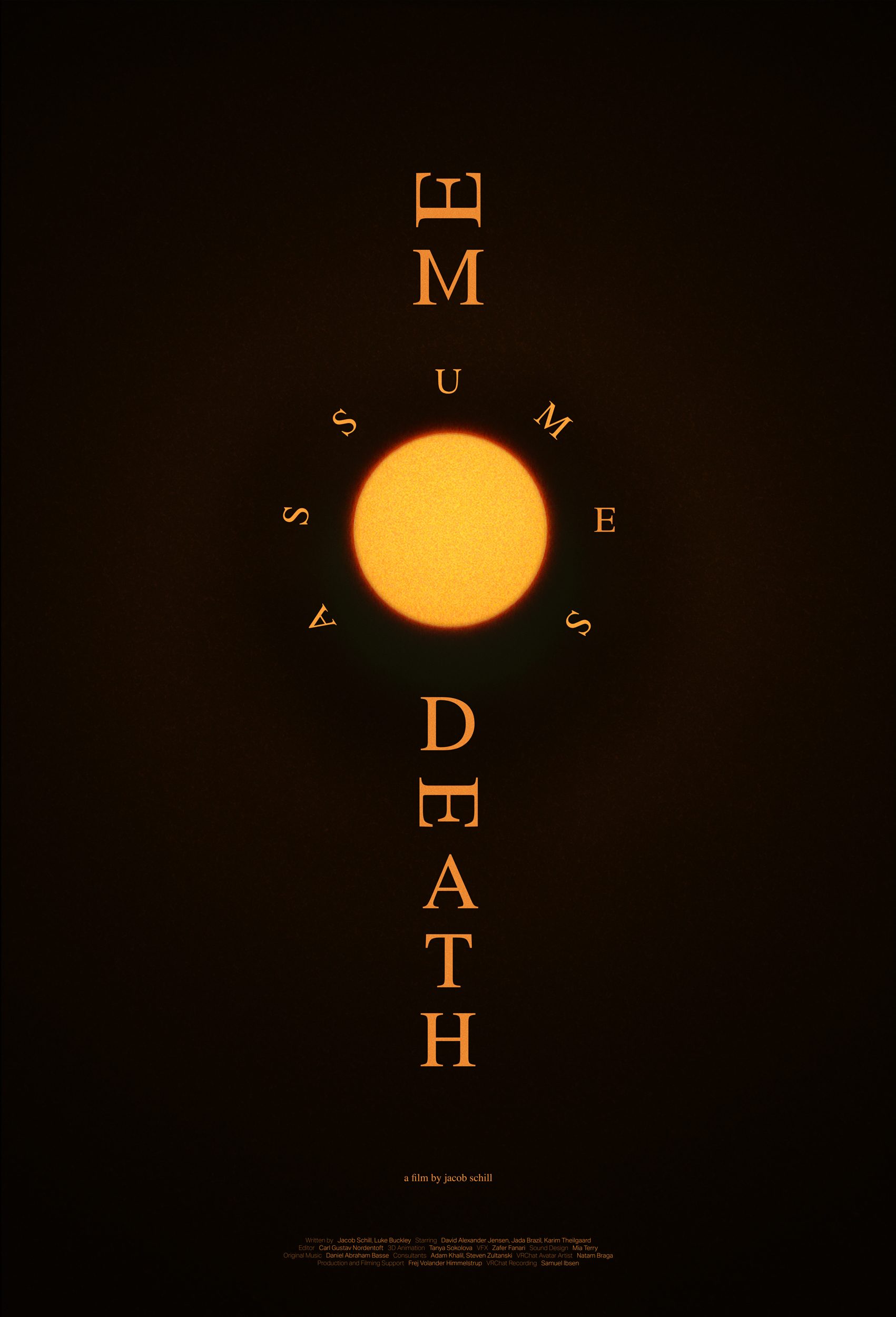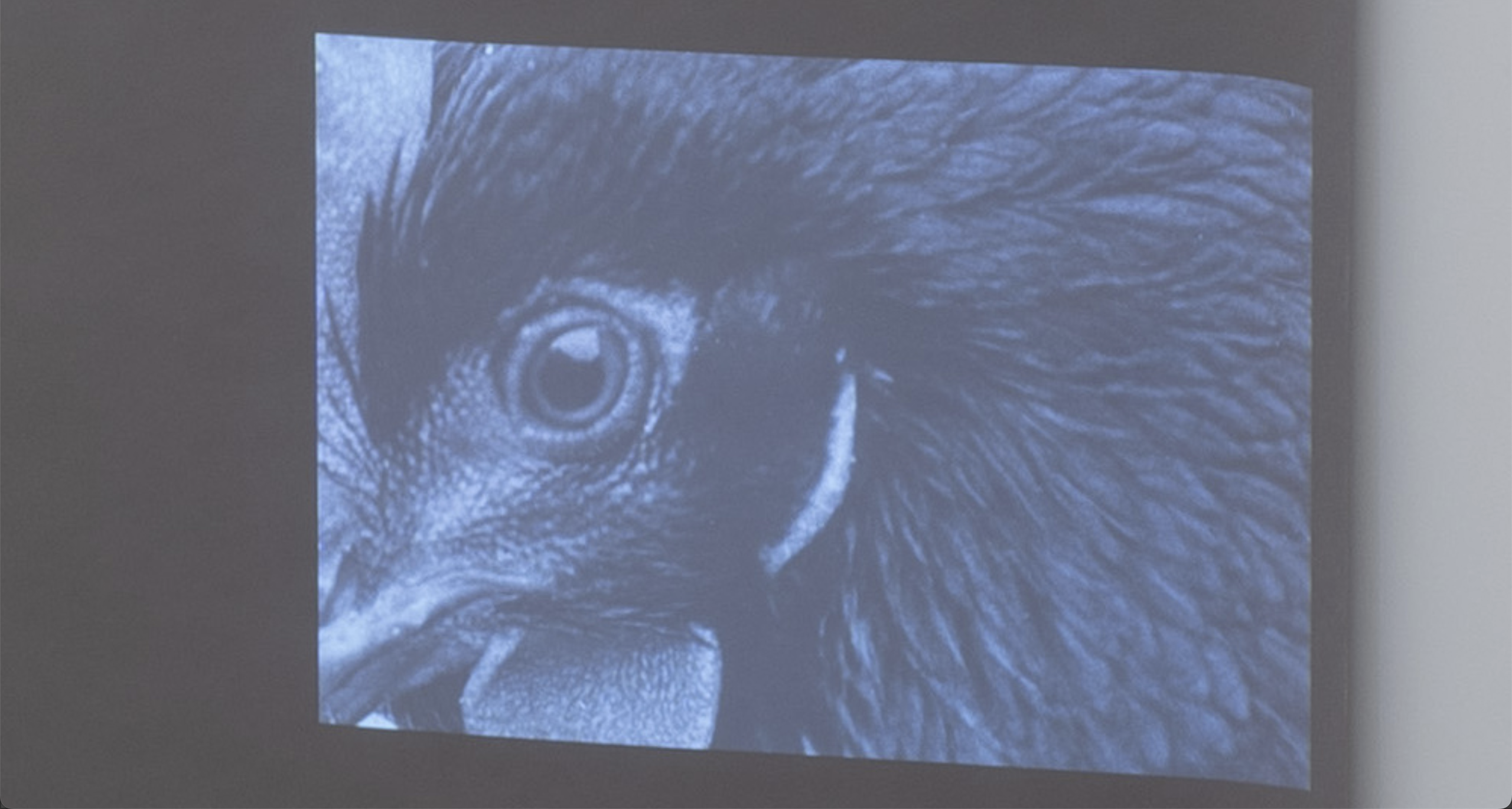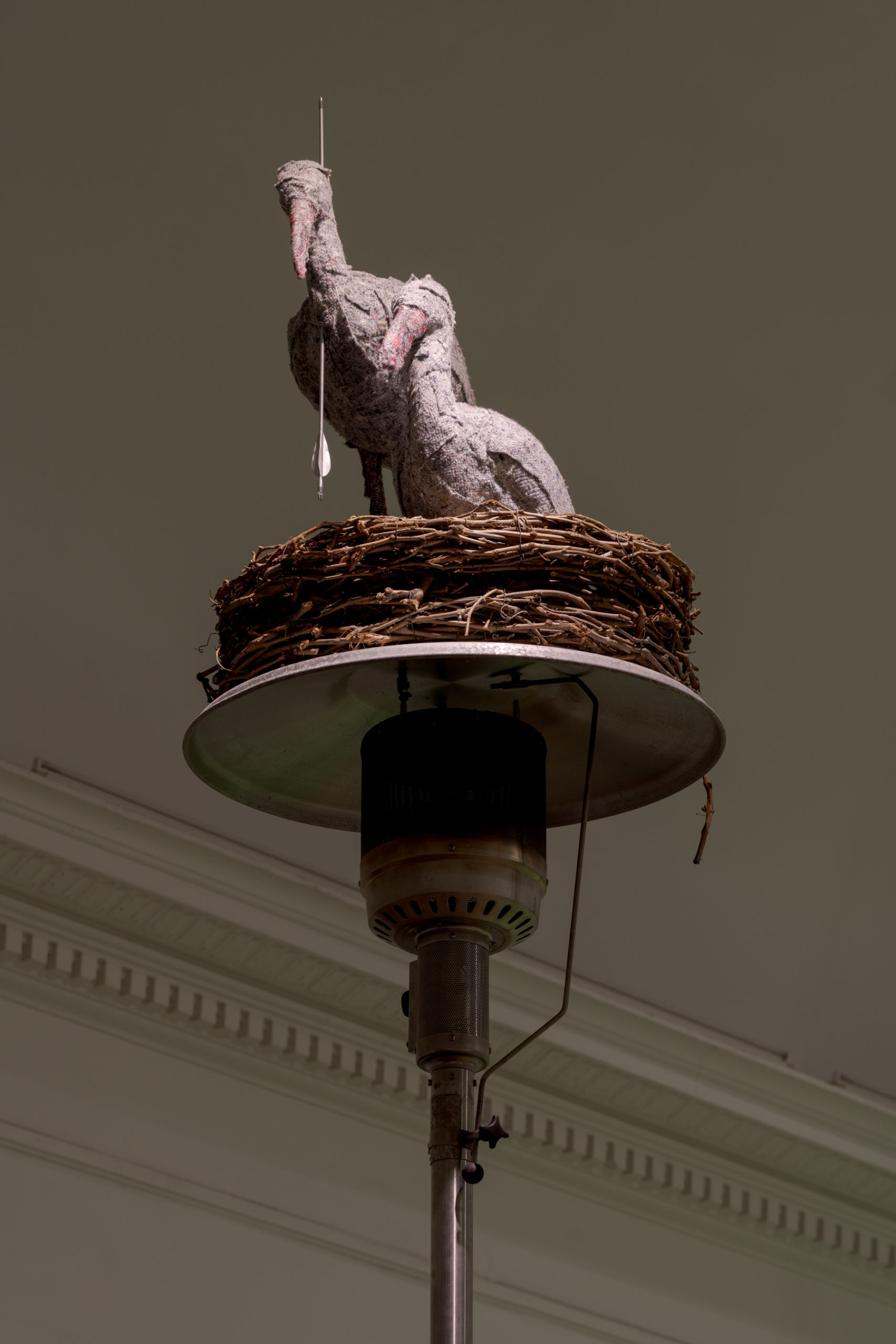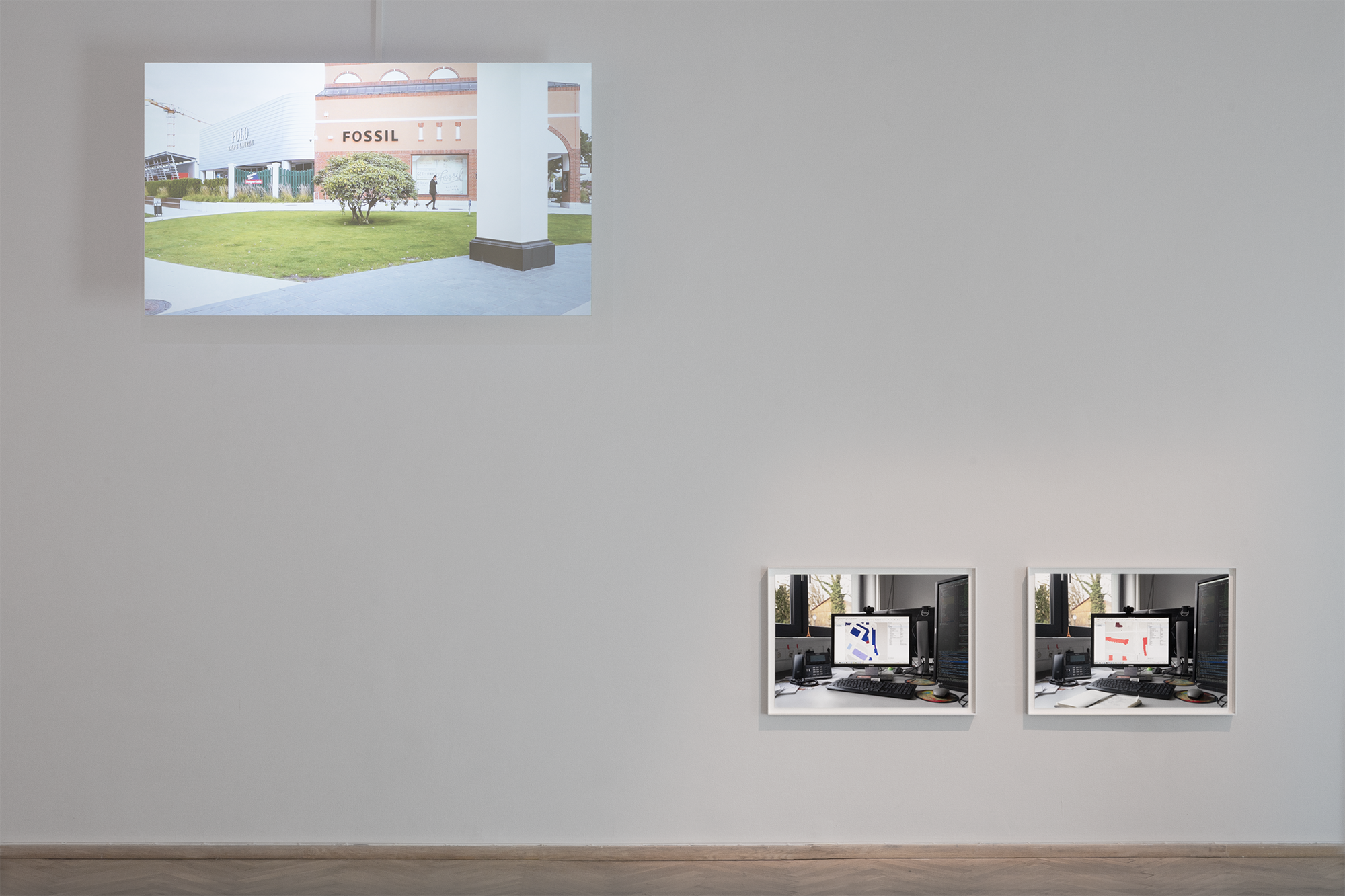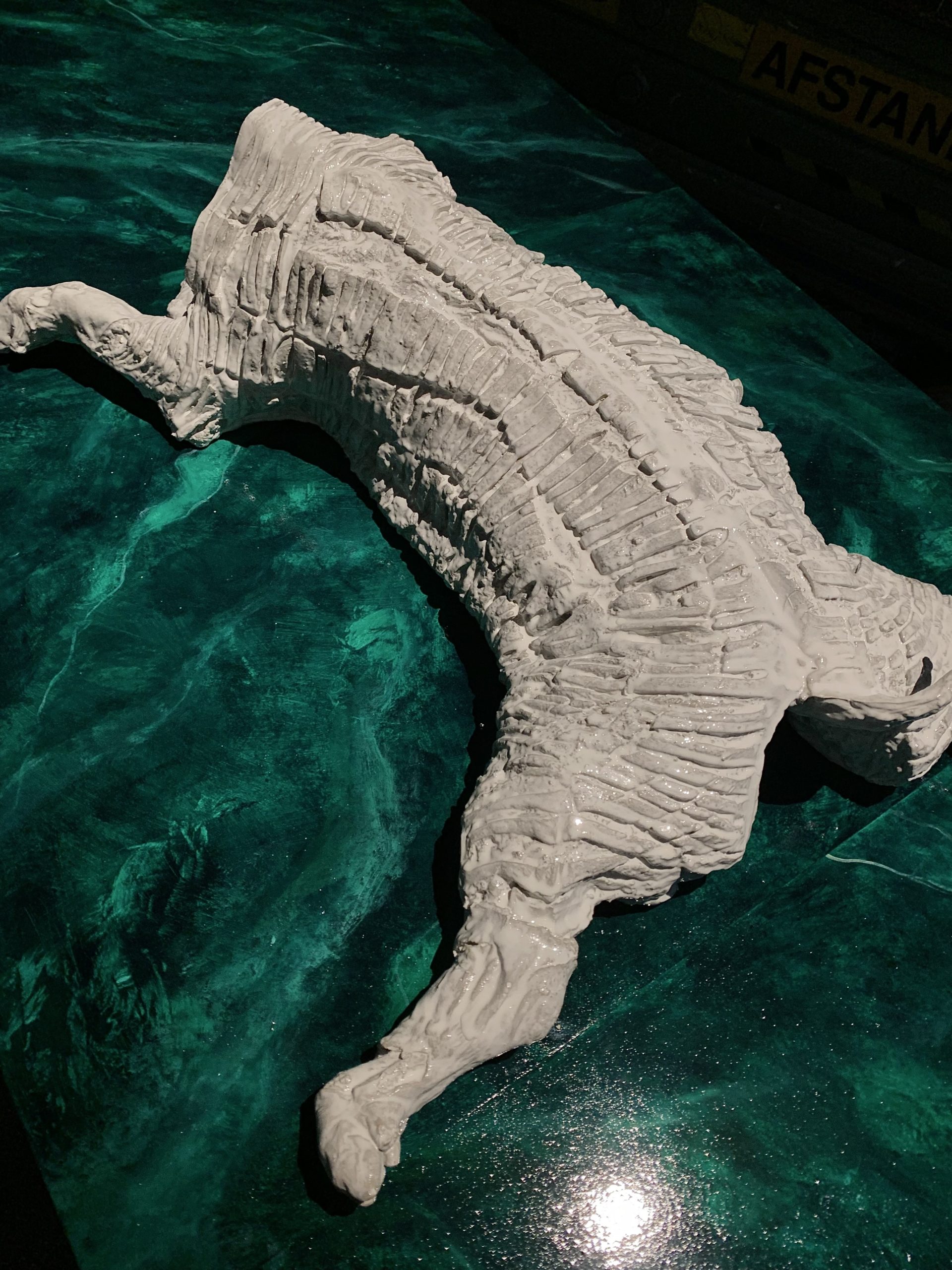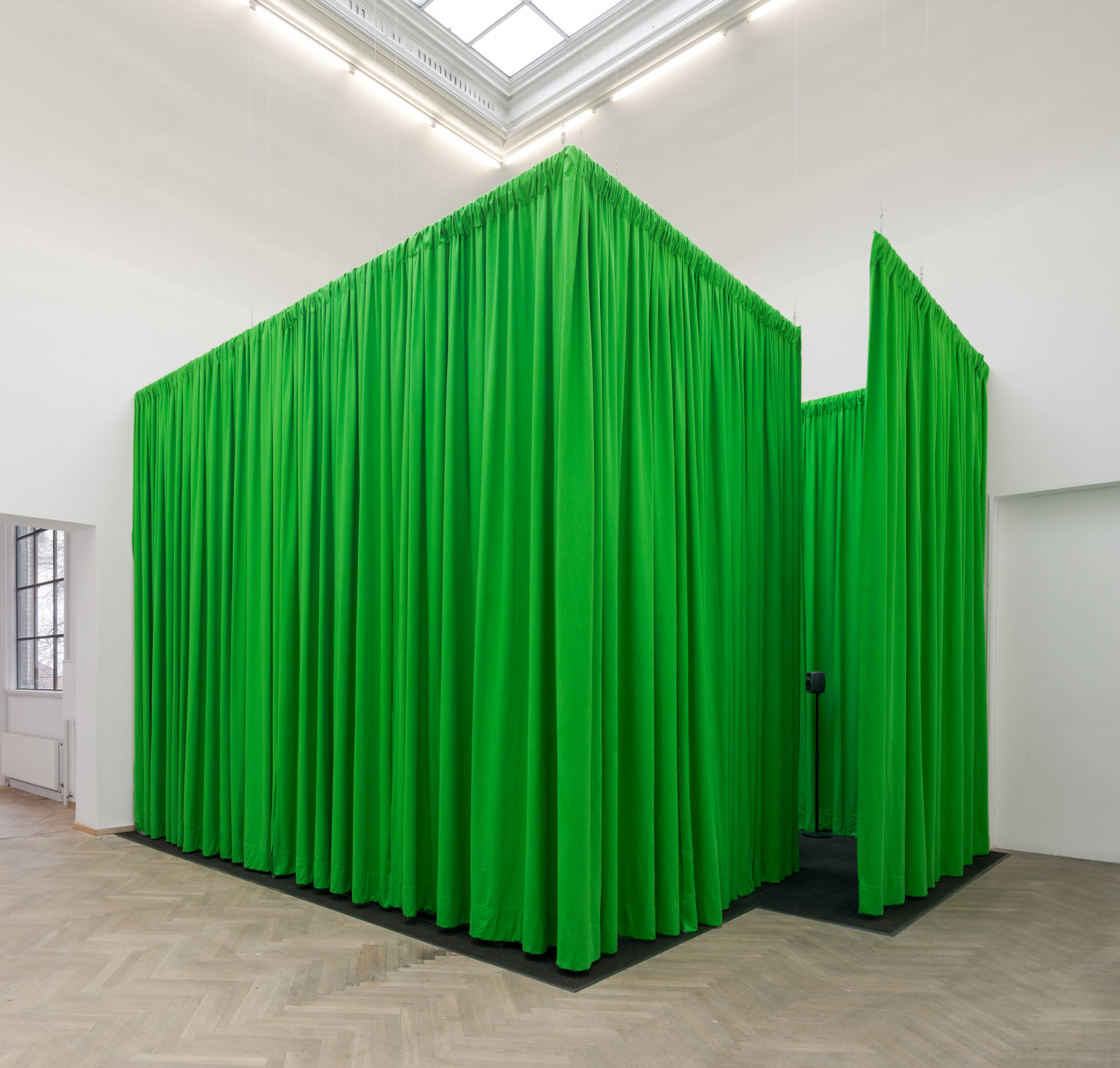Sinking Latitude(2024)
HD video, storeo sound, 20:00 min
Considering the underground as both a metaphor and a manifest reality, Zheng’s film Sinking Latitude(2024) focuses on a myth about underground flooding. The city where the story takes place (the artist’s hometown of Zigong in the Sichuan province, China) has a history of salt mining that spans more than 2000 years, and generations of residents who have lived there have passed down a prophetic myth for centuries–that due to excessive mining, the city’s underground has long been hollowed out and depleted, filling with salty brine, and that one day, when an earthquake occurs, an underground flood of salty liquid, the mine itself, will surge out and engulf the city.

Zheng’s film takes the form of a fictional dialogue between three characters—puppy, master, and dinosaur—as they discuss this myth. The master has lost their memory of the flood myth, and the puppy takes on the task of recovering this memory with the help of the dinosaur, who represents the impact of time on reality. Through their conversations and questions, the group begins to uncover how the fear of an unknown disaster has affected their perception of the world. The film traverses different locations, making the underground visible, and providing views of cityscapes, a site of dinosaur fossils, salt wells, an abandoned salt factory and its residencies, and sequences of miners using archaic techniques within a salt mining museum, at once performing and working. The landscape is viewed as a perforated body that is littered with debris and risk, with the wells at once towering and deeply rooted in the ground. This documentary-like footage is integrated with scenes shot in the studio or borrowed from the internet, as well as black and white still images of dinosaur bones, and animated footage of the puppy and flooded underground landscapes implying the oncoming future. Indeed, Sinking Latitude continuously crosses temporalities, merging deep time with lived time, recalling past events while also reflecting on relationships in the present, and nervously discussing the uncertain catastrophe that lies ahead.
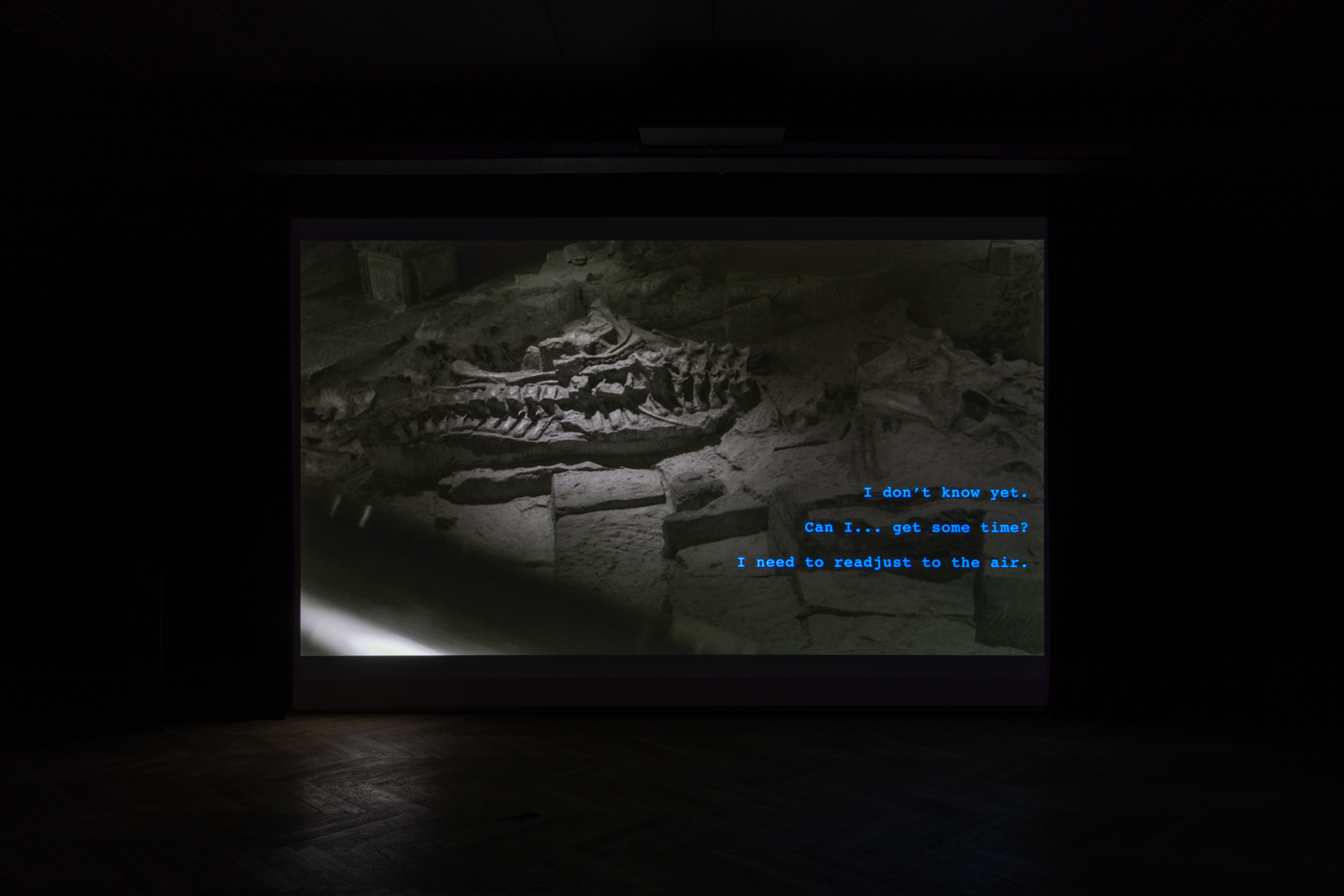
Imagining a hollow and flooded world of liquid salt, Zheng’s film fractures notions of time, agency, and visibility, charting both a feeling of groundlessness, and a fluid bond between geology, biology, and biography. The narrative certainly prompts a reflection on the increasing climate catastrophe and apocalyptic thinking, yet it is more a rumination on time and places where myths, identities, and communities come together, where memories are formed, congealed, and concretized, and realistic fears are displaced as stories. Here, myth is shown to be intimately tied to memory, not only a personal or collective, but also primeval and hydrological.
Text: Post Brothers
